The movie opens with a narrator explaining to us that he won’t bother us with details, such as when this story takes place or the history surrounding it, “Because it would bore you and you wouldn’t listen,” and this is all to let the viewer know that, "You aren’t watching your dad’s Robin Hood." Of course, the real reason behind such an opening is to give the filmmakers the go-ahead to make up any ludicrous version of Robin Hood that they’d care to explore, which is fair enough, but then the film quickly informs us that the setting of this movie is during the Third Crusade, which took place between 1189 and 1192, so we now have a historical timeline and thus, this opens them up to being lambasted for historical inaccuracies. If you wanted to make a steampunk Elseworlds version of Robin Hood, go right ahead — but then you would have to create your own world, something director Otto Bathurst and company were clearly too lazy to do.
This looks more like Rome than Nottingham City.
What we get from Otto Bathurst is a Robin Hood movie that simply name-checks various characters from the legend, has it take place in a kind of medieval setting — though with “Occupy Wall Street” and “One Percenter” themes mashed in wherever possible — and runs off with its own “Rob from the rich and give to the poor” story, while abandoning everything else familiar to the Robin Hood legend. This is not an intrinsically bad idea (if the filmmakers had put any effort at all into the proceedings), but sadly the end product here is a mishmash of themes and genres, with no cohesive thread to pull it together. We are introduced to Lord Robin of Loxley (Taron Egerton), who is madly in love with a feisty thief named Marian (Eve Hewson), but he is drafted into the Crusades by the evil Sheriff of Nottingham (Ben Mendelsohn), who soon has Robin declared dead so that his lands can be seized to help pay for the war effort.Historical Note: Soldiers were not “drafted” into the Crusades, killing heathens that occupied the Holy Land was a religious duty that got you a free pass into Heaven — not to mention a lot of loot — and a city sheriff would certainly have no power to draft or seize the lands of a noble, even if he wanted to.
Off in the Holy Lands, we find Robin becoming quickly disillusioned with being a Crusader — dodging anachronistic rapid fire crossbows really ruining his day — and when his nasty commander, Sir Guy of Gisbourne (Paul Anderson), starts executing prisoners, Robin steps in and tries to save a young Moor from getting his head lopped off. Unfortunately, he fails and is sent home for being a git. Now it just so happens that this dead boy’s father is an Islamic warrior named Yahya (Jamie Foxx) — basically this movie’s Legolas — and he is so impressed with Robin for “trying” to save his son, that he follows him all the way back to England. He vows to train Robin to be a badass fighter — turning him into Legolas 2.0 — and the two of them decide to end the war by cutting off the money supply. To say this pair is about the dumbest idealistic heroes in history of movies would be a vast understatement.
"Hello, I will be this film's Morgan Freeman."
Sadly, on the romance side of things, the homefront has gotten a little complicated, Robin having been declared dead has resulted in Marian "moving on" and is now dating Will “Scarlet” Tillman Jamie Dornan), who is an aspiring politician that wants to use the people’s unrest to further his career. Yahya, now called John because Robin can’t pronounce his real name, urges his young charge to keep Marian out of their business, under the auspices of keeping her safe. He then comes up with a plan that will have Robin masquerading as a frivolous playboy to win the Sheriff’s confidence, while at night he would be running around in a hood, robbing the from the rich and giving to the poor.So he’s not so much Robin Hood as he is a Zorro knock-off.
Somewhere in this film’s two hour run-time there is a good movie to be had. There are a few action sequences that are generally fun, and Jamie Fox and Taron Egerton have genuinely good chemistry together, certainly more than what we get between Egerton and Eve Hewson’s vapid Maid Marian (whose sole purpose in this movie seems to be providing heaving cleavage and being rescued), but director Otto Bathurst keeps getting in his own way. He's constantly throwing in modern themes that in no way fit in with the story he is trying to tell, creatinf one of the most ridiculous plots ever put to film.Turns out the Sheriff is in league with an evil Cardinal (F. Murray Abraham), and the two of them are using the war tax to fund the Saracen army in the hopes that this will somehow destabilize England, and thus give them ultimate power. Hold it a minute guys, how exactly is that supposed to work?
The Plan:
• Declare war and start a third Crusade.
• Somehow draft a bunch of nobles to go and fight it.
• Tax the poor to fund the Saracen war effort.
• England loses the Crusades and the Sheriff and Cardinal become rulers.
• Profit.
“In this country, you gotta make the money first. Then when you get the money, you get the power. Then when you get the power, then you get the women.”
I’m not sure what King Richard was supposed to be doing during all these evil machinations — in fact the film doesn’t mention him or Prince John at all —and how some local sheriff has achieved this level of power over the local nobility is never explained, (for even with the support of the church such an appointed position as sheriff would have very limited power). We get some idiotic monologue from the Sheriff explaining how as an orphan boy he was beaten by the nobles, and though this explains his hatred for the nobility, it in no way clarifies how this led to him being able to order nobles to be executed. That someone hadn’t stepped in and murdered the Sheriff is the true mystery here, and while all this is going on, Robin Hood is running around being an action hero, which is about as helpful as pissing into the wind.
Stray Observations:
• Crusaders can apparently call in air strikes.
• Nottingham looks like a Middle Ages version of the Mega-Cities from Judge Dredd.
• Robin of Loxley is wanted for “The Youth Vote.” Was that a thing in the 16th Century?
• The mines of Nottingham — which in reality it never had — rival the Mines of Moria.
• We see a party of Medieval One Percenters, one that consists of scantily clad women in high heels gambling at roulette wheels. It was at this point my anachronistic meter broke.
• While in disguise, Robin is called “The Hood,” which just reminded me how dumb it was when Oliver Queen was called "The Hood" on the television show Arrow.
• People nail hoods to the walls as some kind of symbol of solidarity.
The plot and structure of this particular Robin Hood never works, as the writers clearly forgot that their setting is during a time of monarchy rather than a fascist republic, thus rendering all the scenes of the Sheriff giving speeches to people about how they all must support the war effort, completely ridiculous. Why would the Sheriff need the support of the poor to pass a tax bill? It’s not like the poor are allowed to vote on such things, not to mention the bigger question as to why a sheriff is in the position to create legislation in the first place.
"I'm the evil sheriff who clearly failed his civics class."
Otto Bathurst’s Robin Hood is not only an anachronistic mess — which I could forgive if the end result made for a compelling story — but with elements borrowed from political ideologies veering from Victor Hugo’s Les Miserable to the current political climate under President Trump, it ends up not saying much of anything at all. I can forgive a movie that gives us Gatling-gun style crossbows, but not when it also tries to be a self-important message picture, one that didn't actually bother to come up with an actual message other than, “Greed and corruption is bad, and war is unpleasant.” That's sure taking a hard stand there, Otto. This is a Robin Hood film that failed under the weight of its pretensions and the nonsensical nature of its supposed plot.Note: By the time the film ends, it’s clear that they were hoping to get a sequel out of this thing, but as in the case of Guy Ritchie’s disaterous King Arthur: Legend of the Sword, there is no chance of that happening.
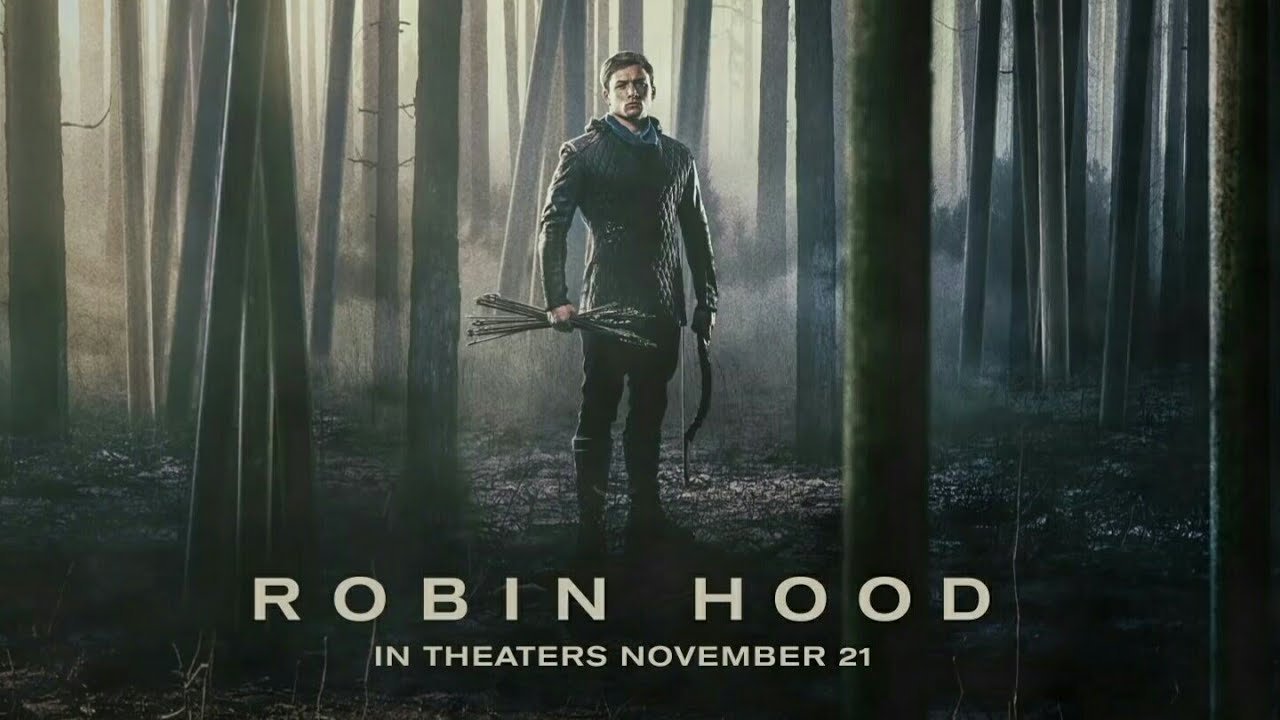
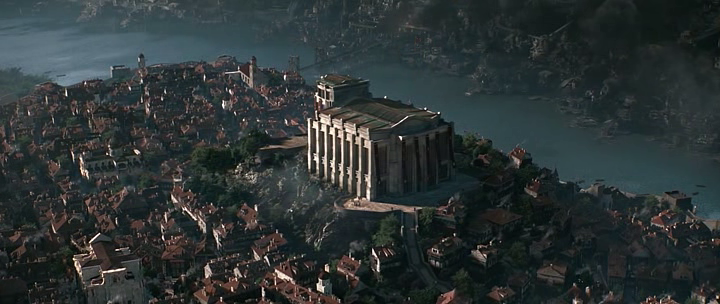
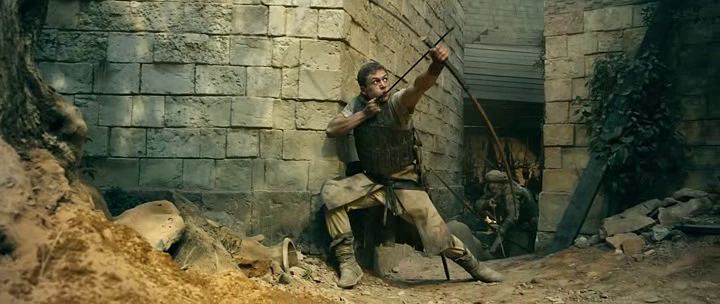
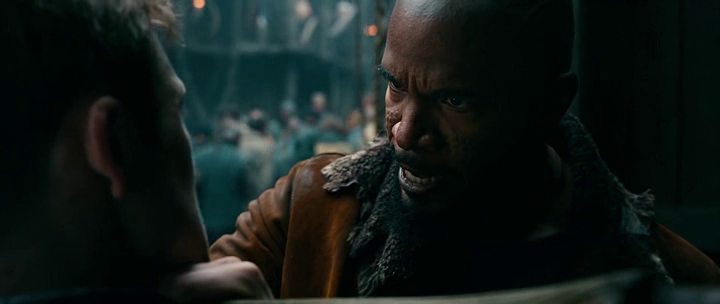
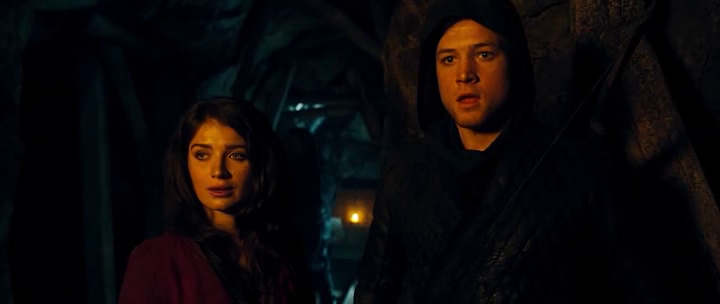
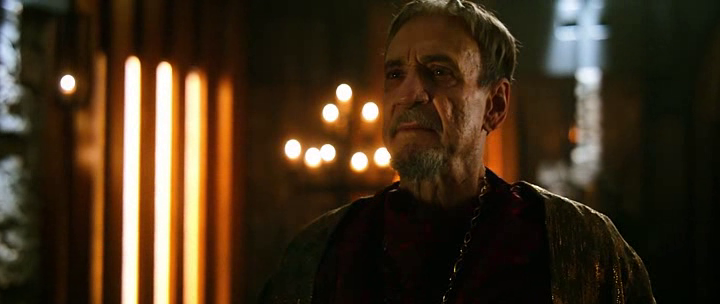
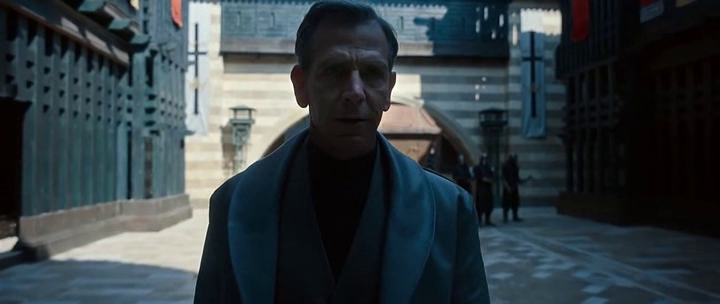
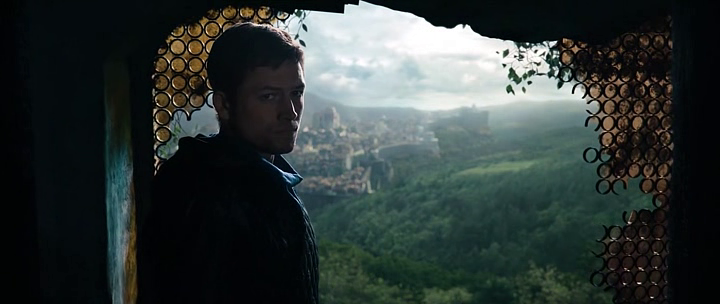

No comments:
Post a Comment